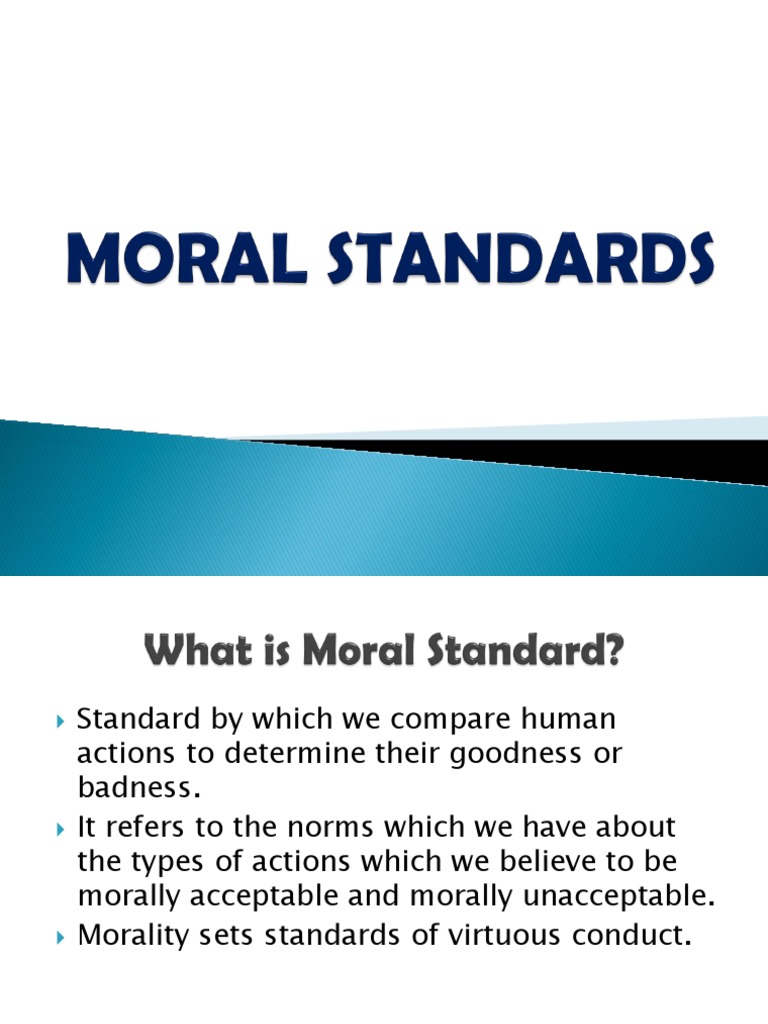The Bahá’í teachings offer profound insights into the essence of morality and ethics, particularly emphasizing the necessity of a unified moral code for all humanity. This discourse delves into the critical theme of choosing a moral code and advocates the imperative that both men and women adhere to the same elevated standards of conduct. It posits that while the attributes of men and women may manifest differently, their moral responsibilities should converge to foster a just and harmonious society.
In exploring the concept of a moral code, it is essential to comprehend its foundational role in shaping individual character and societal norms. A moral code serves as an ethical compass, guiding individuals in discerning right from wrong, fostering personal integrity, and promoting social cohesiveness. From a Bahá’í perspective, the moral landscape is not merely an abstract assemblage of rules; rather, it is a dynamic framework grounded in spiritual principles and universal virtues that resonate across cultural and temporal boundaries.
One of the central tenets of Bahá’í teachings is the principle of the oneness of humanity. This principle asserts that all human beings, irrespective of gender, are inherently equal and deserving of the same rights and responsibilities. Consequently, the moral standards that govern the actions of men and women must reflect this equality. This notion challenges societal norms that have historically dictated disparate ethical expectations based on gender, an archaic view that contributes to inequality and injustice.
The disjunction between masculine and feminine moral standards is not merely a theoretical dilemma but a tangible societal issue. In many cultures, men have traditionally occupied positions of authority, often leading to the imposition of their moral perspectives onto women. This imbalance results in a disconnect between the lived experiences of different genders, perpetuating cycles of inequity. By advocating for a shared moral code, Bahá’í teachings aspire to dismantle these barriers and promote an inclusive dialogue about ethical accountability.
Furthermore, the Bahá’í approach to morality transcends individualistic interpretations. It promotes collective ethical discourse, urging both genders to engage in collaborative discussions that reflect their diverse experiences while striving for a communal moral framework. Such an approach fosters empathy, understanding, and respect among individuals, ultimately culminating in a more robust societal structure where both men and women contribute to a common vision of the greater good.
Moreover, the principle of gender equality as articulated in Bahá’í teachings implies that the cultivation of moral virtues is not an isolated endeavor; rather, it requires the active engagement of both men and women. Attributes such as compassion, honesty, and humility are equally essential in nurturing the spiritual and moral character of each individual. Therefore, the moral code should embody these virtues, providing a universal standard that applies to everyone.
Critically, the integration of gender equality into the moral code necessitates a reevaluation of cultural practices and preconceived notions that may hinder progress. This reevaluation calls for a commitment to uplift the moral standards of society as a whole, moving beyond the limitations of tradition. Adapting to contemporary challenges requires a moral adaptability that acknowledges the complexities of modern life while remaining anchored in the principles of justice and equity.
In delineating a shared moral code, it is imperative to consider the influence of education. Education serves as a pivotal vehicle for moral development, equipping individuals with the intellectual tools necessary to engage in ethical reasoning and moral decision-making. The Bahá’í perspective underscores the significance of educating both genders equally, ensuring that all individuals are equipped to embody and uphold the same high moral standards.
The interplay between education and morality reveals itself profoundly in the context of family dynamics. Families serve as the primary environment for moral education, where the values instilled during formative years can shape one’s ethical outlook. In Bahá’í communities, there is an emphasis on nurturing moral education that encompasses both boys and girls, fostering an atmosphere of mutual respect and shared responsibility. The moral upbringings of children in a gender-equal context can significantly influence the broader societal fabric, as these future generations carry forth the values they have internalized.
It is also vital to recognize the role of community in reinforcing a unified moral standard. The Bahá’í community structure provides a platform for collective action, where individuals can come together to discuss, embody, and promulgate shared ethical values. This communal support is instrumental in establishing an environment that champions moral accountability for all, thus empowering individuals to make decisions grounded in equity and justice.
Finally, the pursuit of a universal moral code that elevates the standards for both men and women extends beyond the individual and community; it has far-reaching implications for global coexistence. As the world grapples with issues such as violence, oppression, and ecological degradation, adherence to a singular moral framework that prioritizes equality and justice can serve as a catalyst for collective action on a global scale. The Bahá’í teachings advocate for a world where ethical considerations transcend national, cultural, and religious boundaries, fostering a holistic approach to problem-solving and harmonious coexistence.
In conclusion, choosing a moral code that is equally applicable to men and women is not merely an ethical imperative; it is a foundational element in the quest for a just and equitable world. Through the lens of Bahá’í teachings, we are reminded that our shared humanity necessitates a collective embrace of universal moral standards, guiding us towards a future where integrity, respect, and equality are cornerstones of our societal fabric. As we embark on this journey, let us champion the call for a unified moral code, fostering an environment where the dignity of all individuals is recognized and respected.
